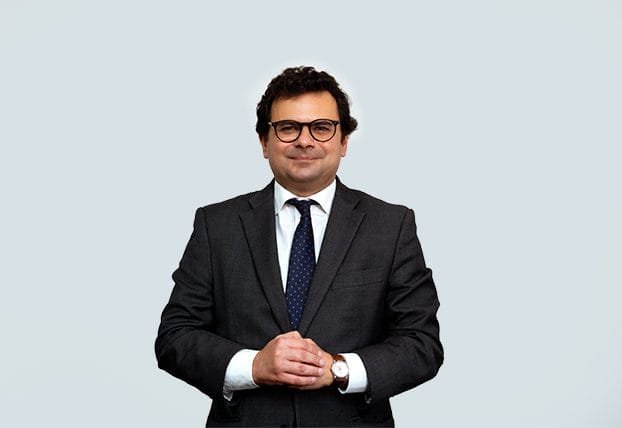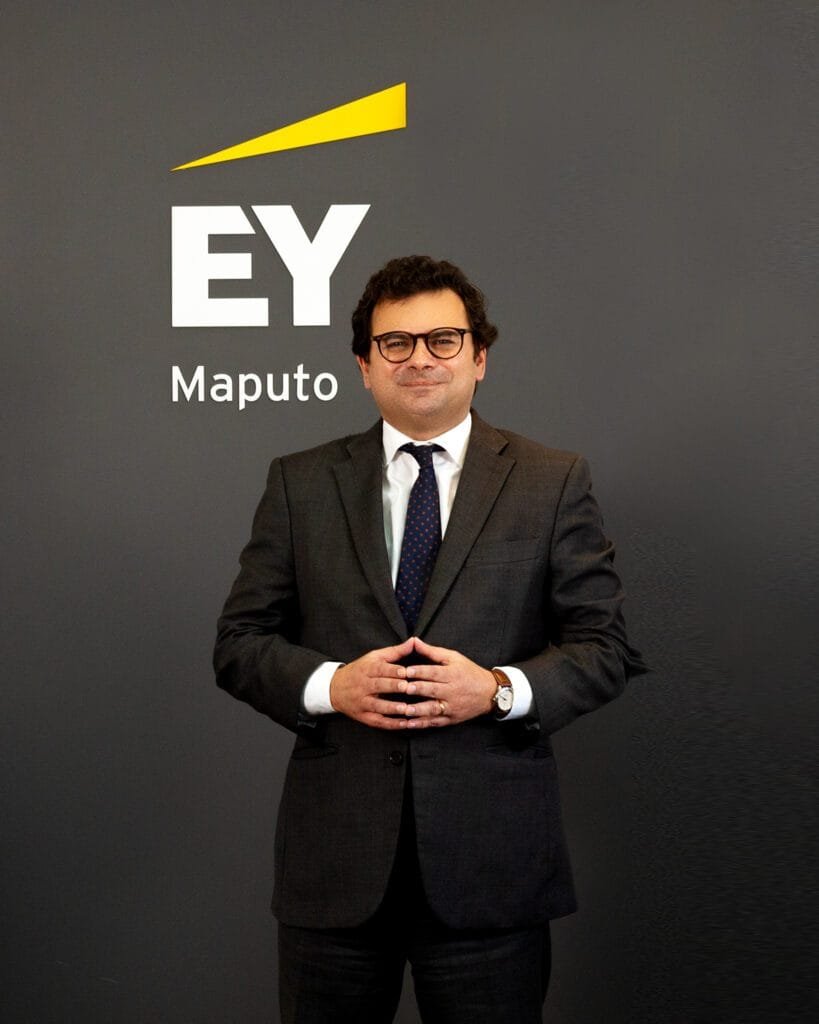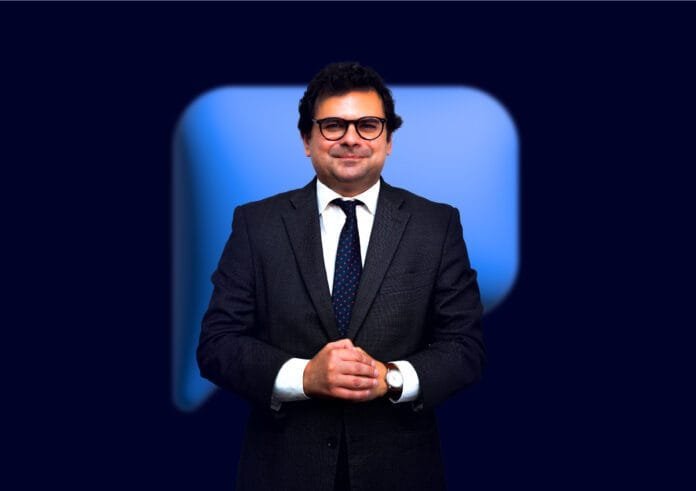Profile Mozambique: How would you describe EY Mozambique’s evolution and positioning over more than 30 years of operations in the country?
Bruno Dias: EY is one of the world’s Big Four professional services firms, present in over 150 countries, and has already built a history of over three decades in Mozambique.
Throughout this journey, we have built a solid and sustainable presence, marked by consistent growth and a continuous enhancement in the quality of our services in audit, consulting, tax and transaction advisory.
We are proud to have supported the country and the private sector during crucial moments of transformation and modernisation of the national economy, contributing to the adoption of best practices in governance, transparency, and business efficiency.
Today, we maintain our commitment to stand alongside Mozambican companies as a strategic partner in facing new challenges and harnessing opportunities for economic and social development.
PM: What strategic priorities guide this new leadership cycle at Ernst & Young Mozambique?
BD: At EY Mozambique, we are beginning this new leadership cycle with a strategy based on three main priorities: innovation, talent, and market proximity.
Firstly, we are reinforcing our commitment to technological innovation, aiming to integrate digital solutions that make our services more agile, secure, and aligned with the digital transformation challenges faced by our clients.
Secondly, we are placing renewed focus on the development and retention of Mozambican talent, heavily investing in continuous training, international certifications, and mobility programmes that expose our teams to global best practices.

Lastly, we continue to prioritise close proximity to the business and institutional ecosystem, supporting companies and key sectors of the national economy in processes of sustainable growth, corporate governance, and adaptation to new regulatory and market demands.
PM: How does your personal experience and professional background influence the approach you intend to bring to EY Mozambique?
BD: With more than 25 years of experience, split between major firms like EY and personal entrepreneurial ventures, I bring a blend of solid foundations and agility in management. Combined with knowledge acquired in emerging markets, this background reinforces my vision of leading EY Mozambique with proximity, flexibility, and strong technical rigour, alongside a team fully equipped to meet the challenges of the local market.
PM: How do you assess the current business environment in Mozambique, and what, in your view, are the main challenges and opportunities for the private sector?
BD: The business environment in Mozambique has gone through complex times, recently marked by some social instability and an economic contraction in the first quarter of this year, with GDP shrinking by around 3.9%.
Among the main immediate challenges, I highlight exchange rate issues and foreign currency availability, which require a structured approach, as well as the need for greater control of public debt by the State.

Despite this context, I believe we are approaching a turning point, with signs that allow us to look to the future with optimism. The resumption of major natural gas projects is an important catalyst to stimulate the economy in the short term, though we must avoid overdependence on this sector and maintain the capacity for sustainable growth in other strategic areas.
Overall, I maintain an optimistic view of the country’s potential, believing that new opportunities will emerge for private investors and for strengthening the Mozambican business fabric.
PM: Which sectors of the Mozambican economy does EY identify as priorities for driving growth in the coming years?
BD: In our view, the energy sector, including major natural gas projects and renewable energy initiatives, is a key short-term catalyst for the Mozambican economy.
However, to sustain balanced and long-term growth, we identify infrastructure investment as a priority, namely the creation of a structured north-south corridor to better integrate the country’s regions and boost the movement of goods and services, especially considering that the capital is located at the southernmost tip.
We also highlight the strategic importance of the primary sector, particularly agriculture, which is the backbone of Mozambique’s economy. Its modernisation and revitalisation could have direct effects on poverty reduction and job creation.
Moreover, we believe that industrialisation should be a clear priority, supported by robust master plans capable of promoting local transformation and increasing national added value.
PM: What support does EY intend to offer Mozambican companies in preparing for challenges such as ESG (Environmental, Social and Governance), digitalisation, and integration into global value chains?
BD: EY aims to support Mozambican companies in preparing for ESG, digitalisation, and global value chain integration challenges, aligning with our international “All In” strategy, which places these areas at the core of our growth.
In Mozambique, we have already developed modernisation projects in both the private sector and government, including World Bank-supported initiatives to digitalise public administration. We want to be strategic partners in this journey, bringing global knowledge adapted to the local context.
At the same time, we are investing in training young Mozambicans in areas such as artificial intelligence and cybersecurity, integrating them into international teams to work on flagship projects and thus contributing to the strengthening of technical competencies in the country.
PM: What long-term vision do you project for EY Mozambique during your mandate? Are there plans to expand areas of operation or develop new services?
BD: The long-term vision for EY Mozambique includes strengthening our traditional services such as audit and tax advisory, but above all expanding into strategic areas such as digitalisation, technology consulting, and BPO (Business Process Outsourcing) services.
With this approach, we aim not only to modernise our service offering but also to become an even closer partner in our clients’ growth and operational efficiency across the country.
PM: What are the main social responsibility initiatives currently implemented by EY Mozambique, especially in supporting women’s entrepreneurship and local organisations?
BD: EY implements various social responsibility actions through its global Ripples programme, discreetly supporting local institutions and small associations.
We also highlight the Be Like a Woman initiative, now entering a new edition, which aims to support and empower young Mozambican women entrepreneurs, contributing to their professional development and the strengthening of female entrepreneurship in the country.

Learn more here: EY Mozambique




